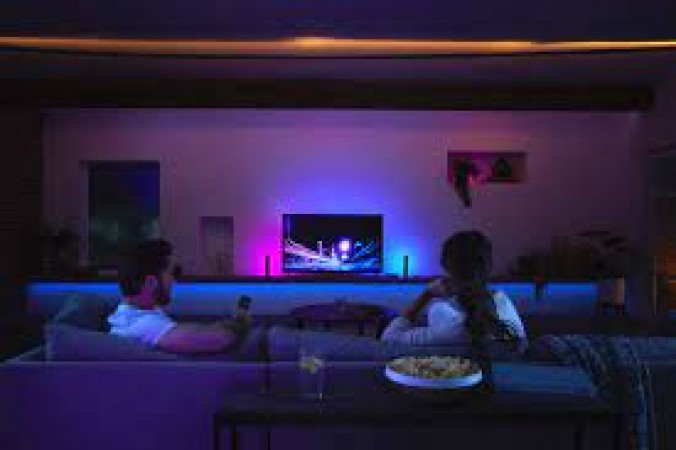
In the age of streaming services and high-definition screens, the debate over whether to watch TV with the lights on or off has persisted. Some prefer the cozy ambiance of a darkened room, while others argue that keeping the lights on is better for eye health and overall viewing experience. So, what's the right way to watch TV? Let's explore the factors to consider:
1. Comfort Level:
1.1 Personal Preference:
Ultimately, whether to keep the lights on or off while watching TV depends on individual comfort. Some people find it more relaxing to dim the lights or watch in complete darkness, while others prefer a well-lit room.
1.2 Eye Strain:
Watching TV in a dark room can cause eye strain for some individuals, especially if the contrast between the bright screen and dark surroundings is too high. On the other hand, excessive glare from overhead lights can also lead to discomfort.
2. Viewing Environment:
2.1 Room Lighting:
Consider the ambient lighting in the room where you're watching TV. If there's natural light coming in through windows during the day, you might not need additional lighting. However, in the evening or in windowless rooms, supplementary lighting can help reduce eye strain.
2.2 Screen Brightness:
Modern TVs often come with adjustable brightness settings. If you're watching TV in a dark room, you may want to decrease the screen brightness to avoid eye fatigue. Conversely, in a well-lit room, increasing the brightness can improve visibility.
3. Health Considerations:
3.1 Blue Light Exposure:
One concern associated with watching TV in the dark is exposure to blue light, which can disrupt sleep patterns and cause eye strain. To mitigate this, consider using blue light filters on your devices or taking breaks to rest your eyes.
3.2 Posture and Ergonomics:
Regardless of lighting conditions, it's essential to maintain good posture and ensure ergonomic viewing conditions. Sit at an appropriate distance from the screen, and position it at eye level to reduce neck and back strain.
4. Practicality:
4.1 Social Settings:
When watching TV with others, consider their preferences as well. Some may prefer a well-lit environment for socializing, while others may enjoy the immersive experience of dim lighting.
4.2 Multi-Purpose Rooms:
If your living room serves multiple functions, such as a TV room during the day and a gathering space in the evening, adjustable lighting options, such as dimmer switches or smart bulbs, can provide flexibility. In the end, there is no one-size-fits-all answer to whether you should watch TV with the lights on or off. It ultimately comes down to personal preference, comfort, and the specific viewing environment. Experiment with different lighting setups to find what works best for you, and prioritize your eye health and overall well-being while enjoying your favorite shows and movies.
Men Should Include These Foods in Their Diet to Maintain Handsome Looks Even After 40 Years
Chewing Neem leaves at this time will cure many diseases, this is the right way to eat them
Your eyes tell you that Thyroid is increasing, know what are the warning signs